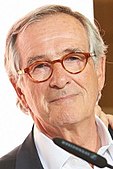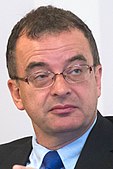| |||||||||||||||||||||||||||||||||||||||||||||||||||||||||||||||||||||||||||||||||||||||||||||
All 41 seats in the City Council of Barcelona 21 seats needed for a majority | |||||||||||||||||||||||||||||||||||||||||||||||||||||||||||||||||||||||||||||||||||||||||||||
|---|---|---|---|---|---|---|---|---|---|---|---|---|---|---|---|---|---|---|---|---|---|---|---|---|---|---|---|---|---|---|---|---|---|---|---|---|---|---|---|---|---|---|---|---|---|---|---|---|---|---|---|---|---|---|---|---|---|---|---|---|---|---|---|---|---|---|---|---|---|---|---|---|---|---|---|---|---|---|---|---|---|---|---|---|---|---|---|---|---|---|---|---|---|
| Opinion polls | |||||||||||||||||||||||||||||||||||||||||||||||||||||||||||||||||||||||||||||||||||||||||||||
| Registered | 1,161,140 | ||||||||||||||||||||||||||||||||||||||||||||||||||||||||||||||||||||||||||||||||||||||||||||
| Turnout | 703,590 (60.6%) | ||||||||||||||||||||||||||||||||||||||||||||||||||||||||||||||||||||||||||||||||||||||||||||
| |||||||||||||||||||||||||||||||||||||||||||||||||||||||||||||||||||||||||||||||||||||||||||||
| |||||||||||||||||||||||||||||||||||||||||||||||||||||||||||||||||||||||||||||||||||||||||||||
The 2015 Barcelona City Council election, also the 2015 Barcelona municipal election, was held on Sunday, 24 May 2015, to elect the 10th City Council of the municipality of Barcelona. All 41 seats in the City Council were up for election. The election was held simultaneously with regional elections in thirteen autonomous communities and local elections all throughout Spain.
The election was won by the Barcelona en Comú (BComú) citizen platform, supported by Podemos, Initiative for Catalonia Greens–United and Alternative Left (ICV–EUiA) and Constituent Process (Procés Constituent) and led by Ada Colau popular activist and former spokeswoman of the Platform for People Affected by Mortgages (PAH). Incumbent mayor Xavier Trias of the Convergence and Union (CiU) federation, who had campaigned for a second consecutive term in office, saw his support reduced from 14 to 10 out of 41 seats in the council. Citizens (C's) became the third largest political force in the city, whereas Republican Left of Catalonia (ERC) obtained its second best historical result. On the other hand, both the Socialists' Party of Catalonia (PSC) and the People's Party (PP) were severely mauled. The PSC, which had won every municipal election in Barcelona and had controlled the local government up until 2011, fell to fifth place and below 10% of the share, while the PP achieved its worst result since the People's Alliance (AP) result in the 1987 election. The Popular Unity Candidacy (CUP) also entered the City Council for the first time in history, winning 3 seats and 7.4% of the votes.
Colau went on to become the first female mayor of Barcelona in history with the support of the BComú, ERC, the PSC and one of the CUP councillors.[1]
Cite error: There are <ref group=lower-alpha> tags or {{efn}} templates on this page, but the references will not show without a {{reflist|group=lower-alpha}} template or {{notelist}} template (see the help page).
- ^ "Ada Colau, Mayor of Barcelona". Barcelona Digital City. Retrieved 2018-12-16.[permanent dead link]





